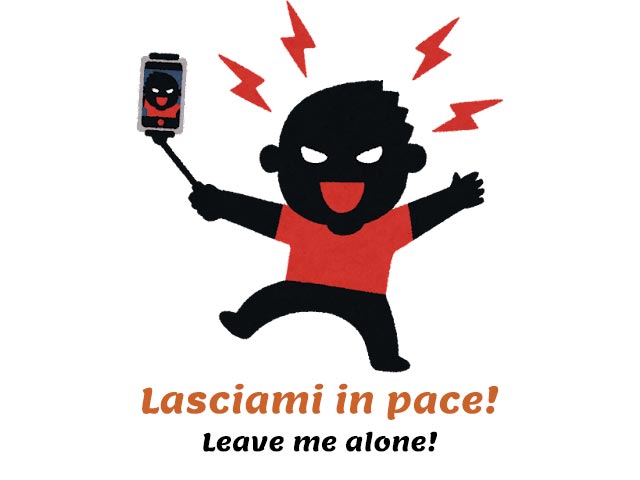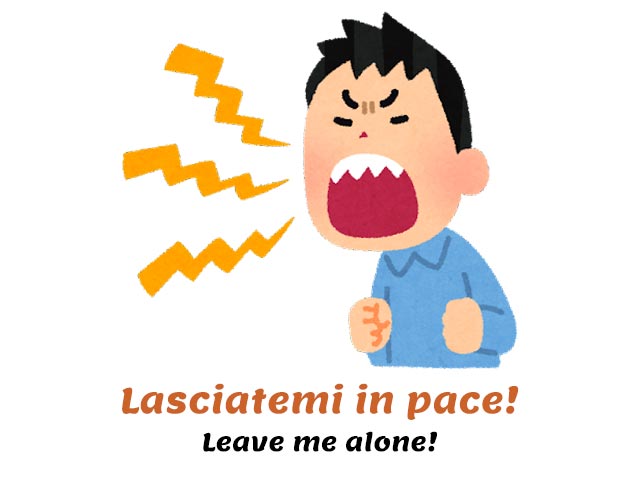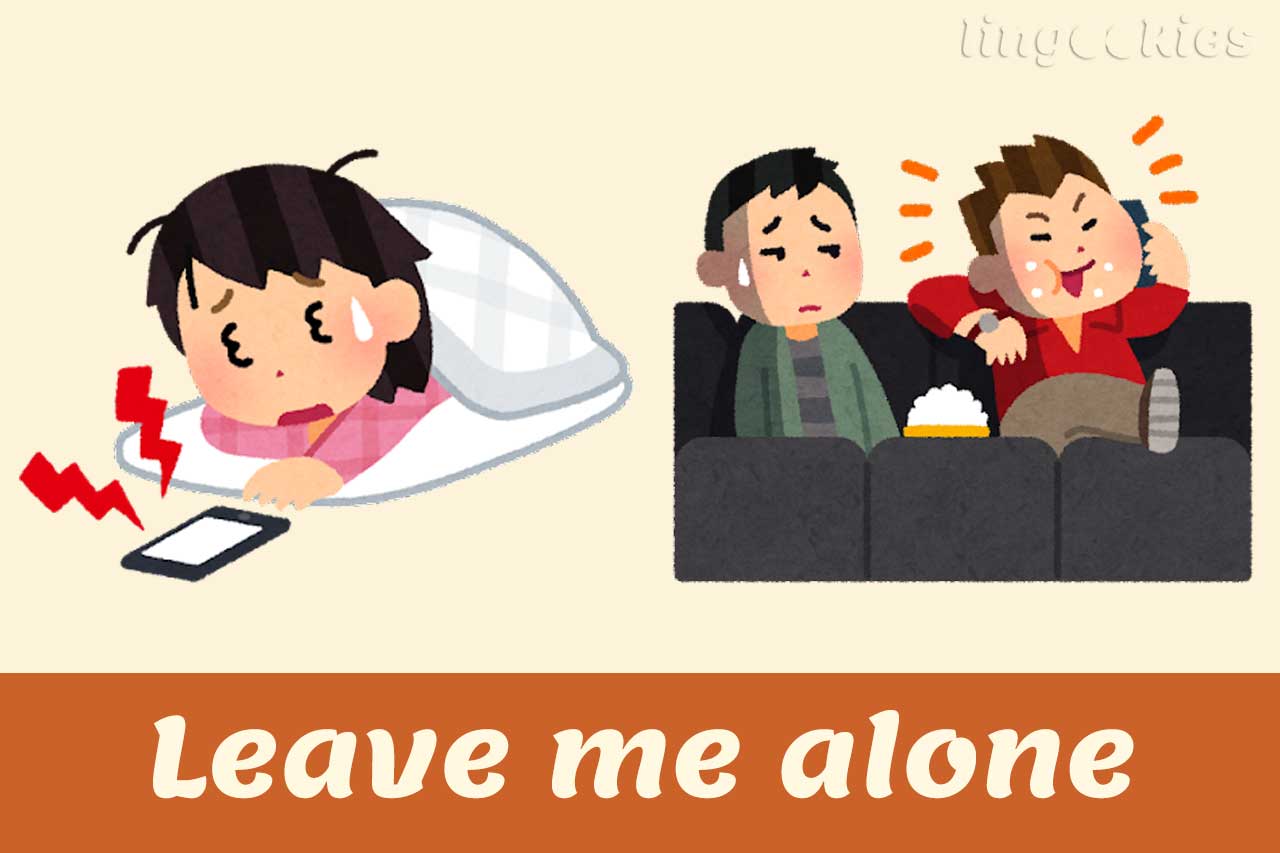How do you say it in Italian?
Lasciami in pace!
| Words you should know | Lasciare (to ley) + pace (peace) |
| When to use this | With 1 person you’re familiar with |
| When NOT to use this | With strangers and groups |
Lasciami in pace
Leave me alone (singular, informal)
Literally: Leave me in peace

For example, you can say…
Lasciami in pace, devo concentrarmi.
Leave me alone, I need to concentrate.
Lasciami in pace, Luca! Sto lavorando.
Leave me alone, Luca! I’m working.
You can’t translate this exclamation literally! You can’t say lasciami da solo or lasciami da sola, with solo or sola meaning alone.
Are you wondering why the direct object pronoun is appended to the verb? Learn how direct object pronouns in Italian work here.

Lasciatemi in pace!
| When to use this | With a group of people |
| When NOT to use this | With strangers and 1 person at a time |
In Italian, unlike English, there are two kinds of “you”. There is a singular “you” and then there is a plural “you”. If you’re speaking to a group, you’ll need to conjugate any verb or pronoun accordingly, and don’t forget the gender!
Lasciatemi in pace
Leave me alone (plural)
Literally: Leave me in peace
For example, you can say…
Lasciatemi in pace o chiamo la polizia!
Leave me alone or I’ll call the police!

Mi lasci in pace!
| When to use this | With 1 person you’re NOT familiar with |
| When NOT to use this | With friends, family and groups |
When speaking formally, Italians address each other with the subject “she”, lei. Use Lei in the written form if you want to be very polite.
Mi lasci in pace
Leave me alone (polite)
Literally: Leave me in peace
If a stranger is bothering you and making you uncomfortable during your trip in Italy, you can tell them mi lasci in pace! with no problems whatsoever.
For example, you can say…
Mi lasci in pace, per favore.
Please leave me alone.
Lasciami stare!
Lasciami stare, along with its plural and polite forms lasciatemi stare and mi lasci stare, is another way you can translate leave me alone in Italian. It’s interchangeable with lasciami in pace and is equally common.
Lasciami stare
Leave me be (singular, informal)
Literally: Leave me to stay
Lasciatemi stare
Leave me be (plural)
Literally: Leave me to stay
Mi lasci stare
Leave me be (polite)
Literally: Leave me to stay
Stare is the equivalent of the English verb to stay, so these can be literally translated as “leave me to stay”.
More free Italian resources
You might want to keep learning Italian online with these free Italian resources:
❤️ If you liked this lesson on how to say leave me alone in Italian, share it with your friends!


